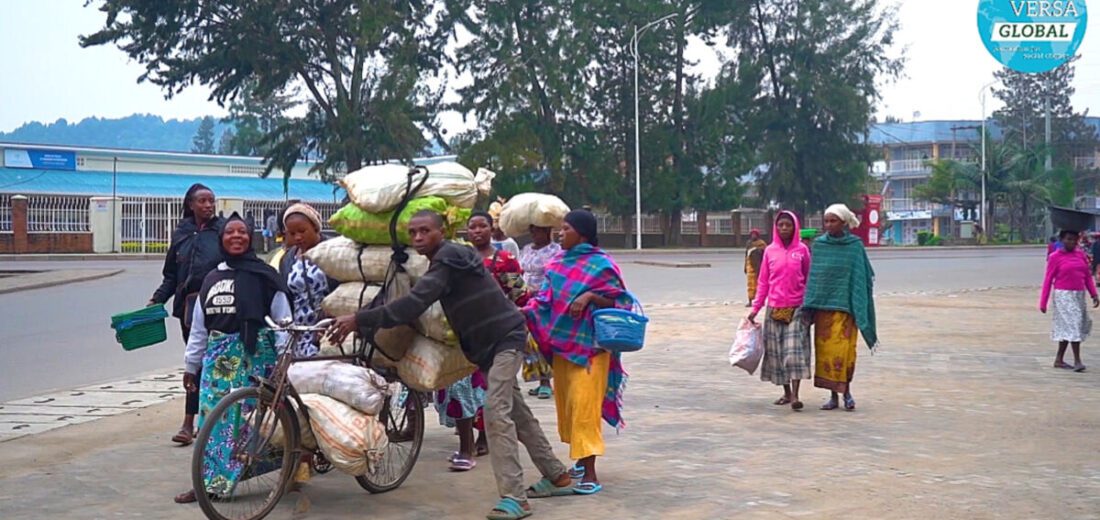
Rwanda’s Everyday Heroes on Two Wheels
On Rwanda’s hills, the story of cycling is written not in medals or podiums, but in the sweat of men and women pushing heavy steel bikes up unforgiving slopes. Long before the world applauded Rwanda’s road racers, cargo cyclists were already carrying the weight of the nation across villages and cities. To understand Rwanda on two wheels is to look beyond sport and see the daily grind that keeps the country moving.
Cycling in Rwanda is not a pastime. It is survival, economy, and mobility rolled into two wheels. Across the country, an estimated 150,000 people depend on bicycles for their daily income, with riders hauling firewood, bananas, potatoes, and every imaginable load across steep hills and busy city streets. Yet despite carrying Rwanda’s economy on their backs—often quite literally—cargo cyclists remain invisible in most conversations about transport and development.
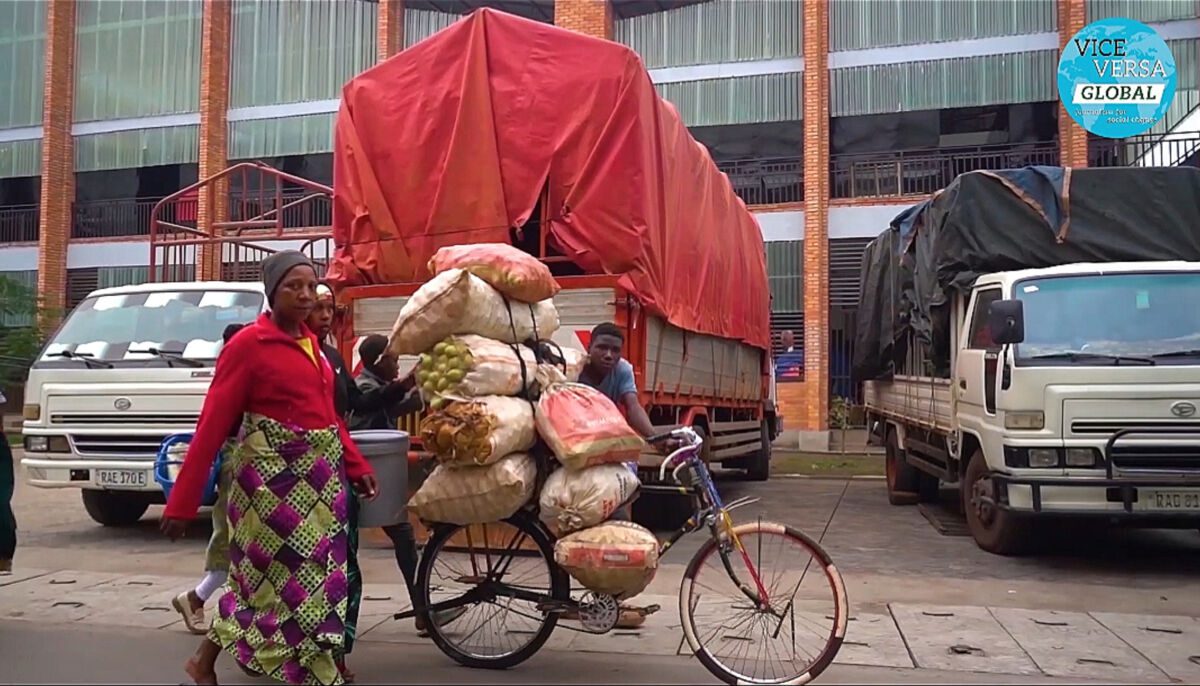
You do not have to go far in Rwanda to see this reality in motion. On village roads and city streets, heavy steel cargo bikes—often old, single-speed machines—carry everything from firewood and bananas to sacks of potatoes. Riders strain uphill, sometimes walking alongside their bikes, then freewheel down treacherous slopes with loads balanced on instinct and experience. It is here, on these roads, that cycling’s true weight on daily life becomes visible.
The same story plays out in Kigali, where walking and cycling make up more than half of all transport trips. Even as the city adds bike lanes and car-free zones, the everyday labor of cargo riders goes unnoticed.
Life on Steep Roads
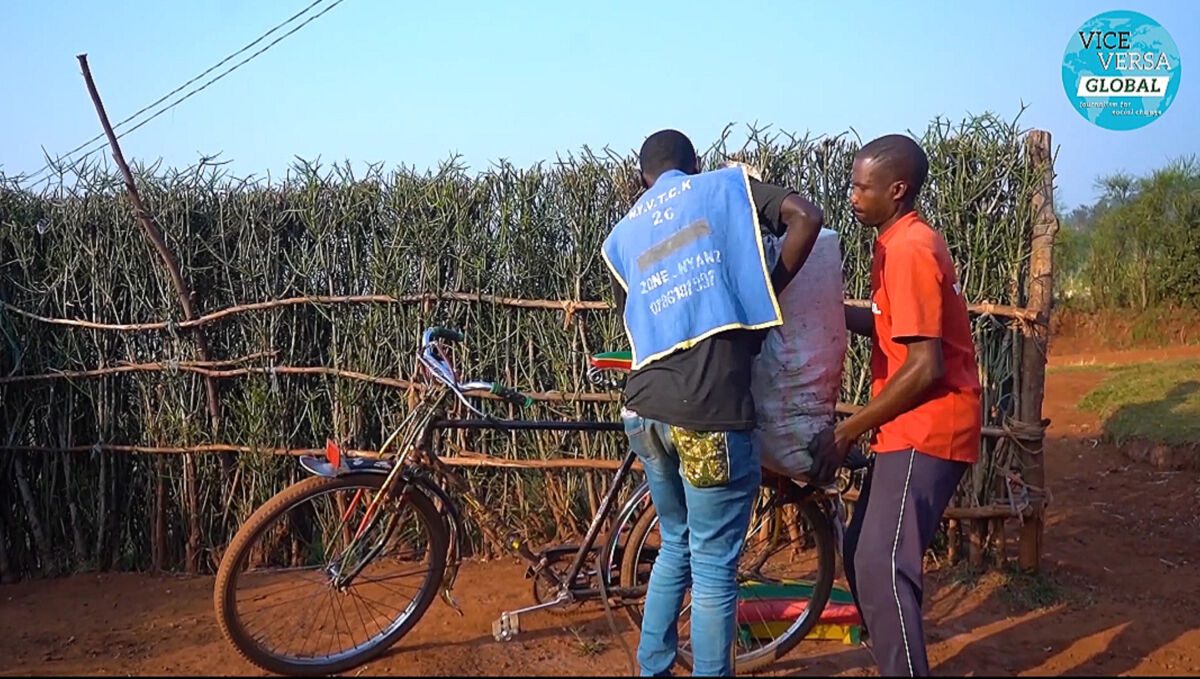
In the steep green hills of Rebero, cargo cyclist Niyomugabo Faustin has spent the past three years making a living by hauling goods. “This was not the life I once dreamed of,” he admits, “but responsibilities pushed me here. Riding with heavy loads is how I survive.” Each journey means grinding up rough, unforgiving slopes without an engine to rely on—every climb a test of stamina, every descent a measure of balance and resilience.
Despite the dangers, most cargo cyclists ride without helmets or protective gear. With little income and almost no access to safety equipment, they depend instead on constant vigilance—scanning every turn, bracing for every slope, and keeping alert as vehicles rush past.
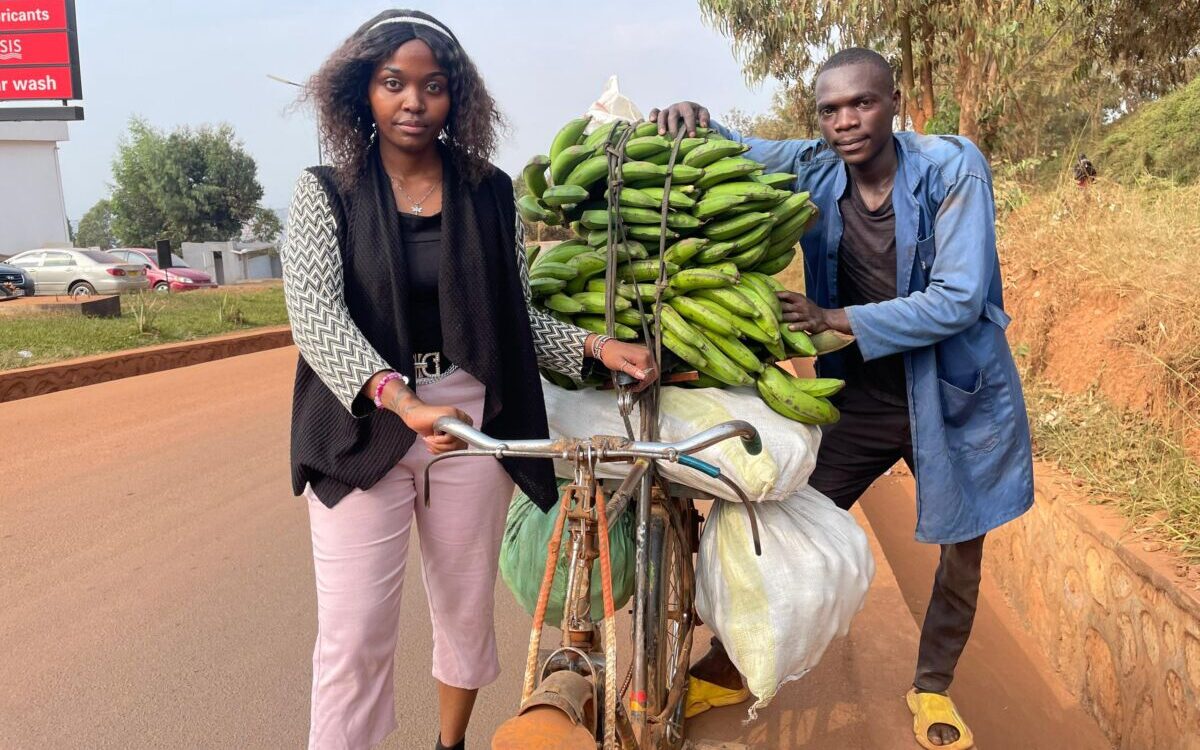
Further along the road, Uwimana Saveri leans into his bike, its frame swaying under a mountain of green bananas. “We help shop owners and families carry what they cannot move alone,” he explains. “There are no easy days, but each day carries the hope I will earn enough to support myself and my family.”
Riders like Niyomugabo and Uwimana keep food flowing from rural farms to urban markets, literally bridging communities. Recognizing their essential role, former National Road Race Champion Ruberwa Jean founded Safe Pedals, now run by Berwa Cycling Tours in Kinigi, Musanze. The initiative provides safety gear, emotional support, and a dignified space for cargo cyclists—especially those grinding up volcanic slopes with bicycles piled high with potatoes.
From Survival to Recognition
Ruberwa points out that his community lacks even a simple bicycle museum—a space that could honor cycling’s deep roots and recognize the labor of everyday riders. His vision combines a safety campaign with a cultural tribute, placing dignity at the center of cycling. “The main reason I focus on cargo cyclists is because they are involved in so many accidents,” he explains. “We distribute helmets, gloves, and reflectors so they can be safe—because we need them.”
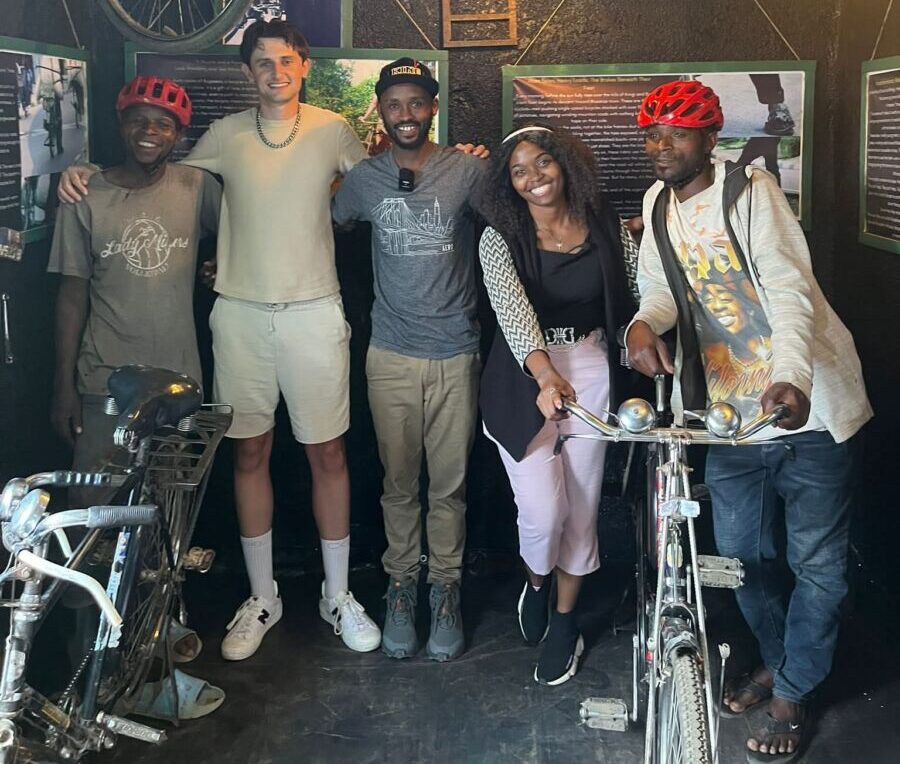
The link between these everyday riders and Rwanda’s celebrated athletes is closer than many realise. Some of the nation’s most accomplished cyclists began the same way. Gasore Hategeka, one of Rwanda’s best-known road racers, once hauled potatoes to market on a handmade wooden bike in his rural hometown. Those grueling uphill pushes built the strength and grit that later carried him to victory at the National Road Race Championship in 2013 and 2017—and eventually to professional teams like Benediction Cycling, Nyabihu Cycling, and even a UCI Continental squad.
Stories like Gasore’s reveal what cargo cycling in Rwanda really represents. It is not just about moving goods. It sustains rural economies, drives urban inclusion, fosters environmental sustainability, and even fuels the nation’s sporting culture. These riders are more than laborers; they are the backbone of Rwanda’s informal economy and quiet champions of sustainable development.
Their resilience highlights an essential truth: bicycles in Rwanda are more than machines. They are tools of survival, dignity, and growth. And if Rwanda is to tell the full story of its resilience and progress, then cargo cyclists must be recognized not as marginal workers, but as frontline actors in a more just and sustainable future.
Edited by Pius Okore.

Leave a Reply